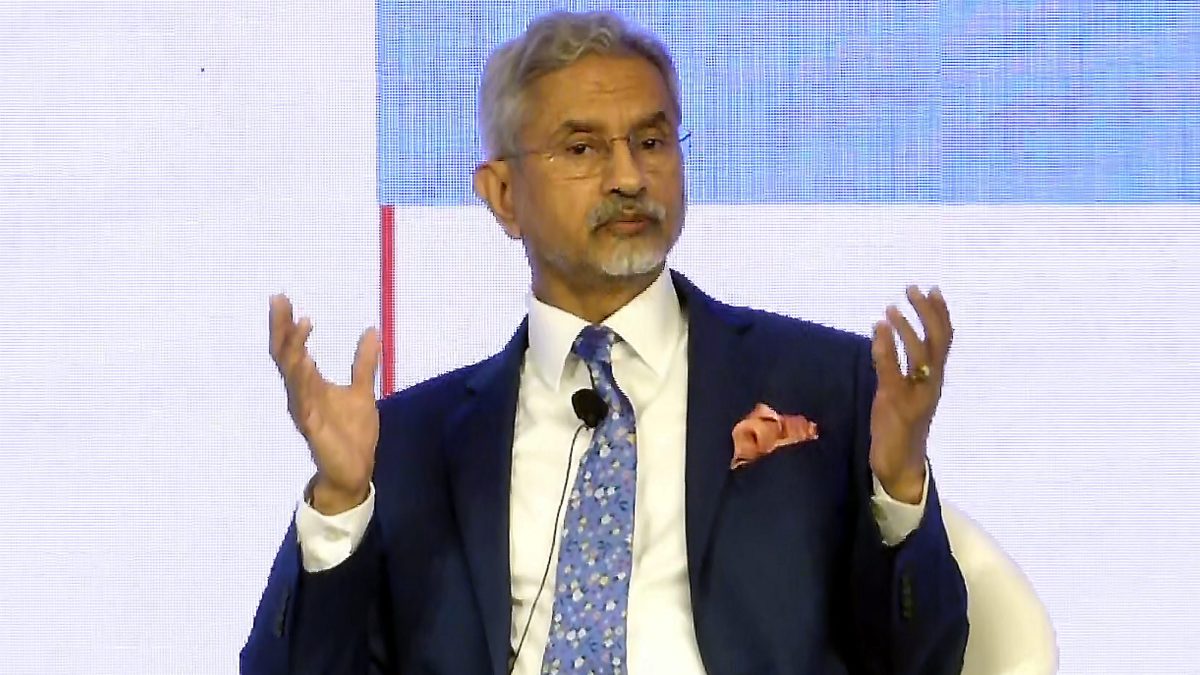External Affairs Minister S Jaishankar has said that the question of India-Pakistan conflict earlier this month “astonishes” him.
In an interview with German-language newspaper Frankfurter Allgemeine Zeitung (FAZ), Jaishankar said that India and Pakistan did not come anywhere near the nuclear threshold in the entire four-day conflict.
Jaishankar said, “We have terrorist targets. Those were very measured, carefully considered, and non-escalating steps. After that, the Pakistani military opened fire on us. We were able to show them that we could disable their air defence systems. Then the firing stopped at their request. At no point was a nuclear level reached. There is a narrative as if everything that happens in our part of the world leads directly to a nuclear problem. That disturbs me a lot because it encourages terrible activities like terrorism. If anything, much more is happening with the nuclear issue in your part of the world.”
In the early hours of May 7, India struck nine terrorist sites in Pakistan and Pakistan Occupied Jammu and Kashmir (POJK) under Operation Sindoor. As Pakistan followed up with attacks on military bases and civilian areas, the two countries were locked in a cross-border conflict for next four days. After India hammered at least eight Pakistani airbases, destroyed air defence systems, and blew up radar sites, Pakistan requested ceasefire on May 10 that India agreed to.
In an address after a ceasefire was reached, Prime Minister Narendra Modi had also addressed the issue of nuclear weapons. He said that Pakistan’s nuclear blackmail would not work and Operation Sindoor-like responses to acts of terror would be a new normal.
With Operation Sindoor, Jaishankar said that India “sent a clear signal to the terrorists that there is a price to be paid for carrying out such attacks, as they did on us in Kashmir in April”.
India has said that more than 100 terrorists were killed in Indian strikes, including senior figures like Yusuf Azhar, Abdul Malik Rauf, and Mudassir Ahmad.
‘Anyone who isn’t blind can see’: Jaishankar on countries seeing Pakistani terrorism
Jaishankar said that “anyone who is not blind” can see Pakistan’s support for terrorism as it is not a secret.
Jaishankar further said, “The UN Security Council terror list is full of Pakistani names and places and these are the very places we have targeted. So please don’t think that something is only going on behind the scenes. In Pakistan, terrorism is a very open business. A business that is supported, financed, organised and used by the state and by their military.”
Impact Shorts
More ShortsAmong the terrorist sites that India struck were Jaish-e-Mohammed’s headquarters in Pakistani Punjab’s Bahawalpur and Lashkar-e-Taiba’s headquarters in Pakistani Punjab’s Muridke.
As for US President Donald Trump’s persistent false claims that he brokered the India-Pakistan ceasefire, Jaishankar said that Indian military actions led to Pakistan requesting the ceasefire and it was the military action and not any external mediation that led to the ceasefire.
When asked if China has played a role in the conflict, Jaishankar said, “You know, many of the weapon systems that Pakistan has are of Chinese origin and the two countries are very close. You can draw your own conclusions from that.”
Jaishankar on US’ role in the world & Europe’s thinking
Even as the world is going through a churn, Jaishankar said that the United States remains the most powerful country in the world and it matters how the country is evolving. At the same time, he said that India was not facing a Europe-like situation because India never had the stability that the security collaboration with the United States offered Europe.
As President Donald Trump has aligned the United States with Russia and done away with the commitment to Europe’s security, the continent has lately woken up to a reality that it is on its own for security.
Jaishankar said, “Every other country must constantly observe how the Americans approach the world and world affairs. And as everyone has noticed, something has changed. But it’s not a new situation for us. We have never had the comfort and continuity that was enjoyed in Europe. Europe had long decades of growth, progress and stability after 1945, even during the Cold War. Only now is that changing. Things were different for us. We had to operate in a difficult environment and had to struggle with it. We have done well and have learned to always make decisions in the interests of our national interests and security. We do everything necessary to achieve this.”
As for Europe’s thinking, Jaishankar said that he has been seeing “big changes” lately that allow for a better engagement. He said that “Europe is much more multipolar in its own mindset, that it feels that it should be more independent and more resilient. For us, this is a Europe that we want to engage with very intensively”.
However, Jaishankar still pointed out how Europe still fails to look at Pakistan the way it looks at Russia.
“Relationships do not develop because one partner simply adopts the concerns of the other as their own. Relationships are built on finding common ground. For you in Europe, other concerns and worries are important than for me in Asia. When you think of conflict, you think of Ukraine. When I think of conflict, I think of Pakistan, terrorism, China, and our borders. Our perspective cannot be the same,” said Jaishankar.
)